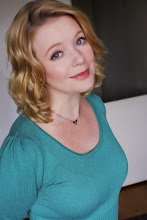As a child, I was an avid but picky reader. I hated books that sugar-coated or dumbed down stories for me, as it always felt like the author didn't trust me to be able to figure things out, or handle the dark truth of the story, whatever that might be. As I got older, my favorite books and teachers were the ones that encouraged me to think for myself, to look into things I didn't understand, and to not shy away from hard truths, dark humor, or odd characters. Sometime in college I started teaching and working in educational theater, and these convictions only grew stronger. I respect that there's a place for bubblegum and fluff, regardless of the audience's age, and that not everyone likes their entertainment as dark or strange as I do. But lately, I feel like there's an overabundance in vapid, formulaic kids entertainment that insults the intelligence and imagination of its intended audience. When I come across a children's book or film that encourages thoughtfulness, cleverness, imagination, and compassion, I add it to my unwritten list of books I'll someday read to my kid...if I ever have kids.
I wasn't even halfway through The Graveyard Book when I realized it had made the list. I got into Neil Gaiman several years ago through a combination of his Sandman comics and the Tori Amos connection. His originality, insight, and humor have never failed to amaze me, and his knack for imagery and realistically constructed, complex characters make his stories impossible for me to put down. I was pleased as punch to hear he'd won the Newbury for The Graveyard Book, and put it on my reading list.
And now it's on my future dream child's list, whether he/she likes it or not. The book covers the childhood of an orphaned boy raised in a graveyard by the spirits of the dead, with considerable help from his self-appointed guardian, a mysterious man named Silas. All of Gaiman's winning narrative qualities are present here, but in addition, there are all of the elements that made a book worth reading to me in my childhood. He doesn't shy away from hard plot points, opening the book with the murder of the boy's family. He doesn't go into detail, or revel gratuitously in the violence of the act. But in order for the story to progress, this dark, awful thing must happen. So Gaiman explains the circumstances lucidly, unwaveringly, and without showy theatrics, demonstrating an honesty and insight that pays a high compliment to his readers.
He refrains from insulting their intelligence as well. He references everything from 19th century poetry to European history to world folklore, confident that if his younger readers want to know more about these things, they can look them up. In fact, this intellectual curiosity is encouraged throughout the book through the young hero, Bod (more on him later). When we are introduced to a new spirit of the deceased, Gaiman mentions the contents of their headstone, allowing the epitaph to provide clues to the character's original time period, passions, and personality. Instead of stating simply that one of the main characters is a vampire, he leaves subtle hints and clues throughout the story. The matter-of-fact statement that the character "only ate one food, and it wasn't bananas" is hands down the funniest, if not the clearest.
In Bod, the orphaned boy, Gaiman creates a spectacular young hero. He is adventurous, clever, and kind, repeatedly exhibiting faith in himself, a shrewd insight into other people's motives and desires, and a tireless sense of curiosity. Having been raised among the dead, he knows that being a ghost, a vampire, or a werewolf does not necessarily make a person evil or even frightening. Bod understands that a person's character is defined by their motives and actions, not the quirks of their personalities or physical characteristics. It helps tremendously that as brilliant as he is, Gaiman allows the boy to be imperfect. Bod and other living children in this book have their stories told from their point of view, allowing the stresses, fears and insecurities we all experience to lead organically and believably to the tantrums, pouting sessions, and poor decisions we all make, both as children and adults.
All of this is set in a world where men can be more frightening than monsters, where the dead continue---but without the boundless potential that makes corporeal existence a blessing, where witches and vampires can be good, and where living between the realms of life and death can be lonely and confusing, but also an extraordinary adventure. Gaiman's story works every bit as effectively for adults as it does for children, making it more than a bedtime story or required library reading. He has constructed a treasure that many children would be likely to carry with them into adulthood, to be cherished and passed down to future generations.
Subscribe to:
Post Comments (Atom)

Excellent review! I have to say, I think mine are gonna pale in comparison. Expect lots of "It was, like, cool and stuff."
ReplyDeleteI think I need to add some Gaiman to my reading list.
ashes over on Pajiba told me that I need to read this book. Now that it has been confirmed to me by someone else, I really need to read this book. Lovely review.
ReplyDeleteON a side note...you're on facebook? Color me curious.